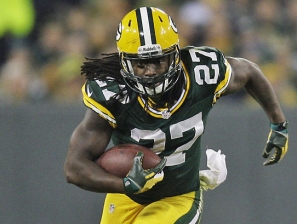History Of NFL Monday Night Football: MNF 1964-1970
We have always spoken highly of former NFL Commissioner Pete Rozelle and with good reason. Rozelle was a brilliant man with unbridled determination and an undying passion for the National Football League. Of his many visions and achievements, one that ranks up their with the best of them was the advent of Monday Night Football.
In 1960 Rozelle pushed for games to be played in prime time and if not for his dogged determination it may not have ever happened.
Prime Time & Monday Night Football – The Early Days – 1951 – 1970
Before Rozelle took over as NFL Commissioner, the original plan for prime time football was put in place on Saturday nights in 1951 but by 1954 it had failed miserably. Poor ratings and the demise of the original broadcaster, Dumont Television Network (picked up by CBS), were the main reasons behind the failure.
With his staunch belief that football could survive in prime time, Rozelle first kicked around the idea of an NFL game being played and broadcast live on Monday night in the early 1960s. The first ever, prime time, Monday Night Football game was played on September 28, 1964 but was not broadcast live. The game between the Detroit Lions and Green Bay Packers drew a sell out crowd of 59,203 fans at the venerable old Tiger Stadium in Detroit and solidified Rozelle’s belief that the concept could and would work.
Despite the unparalleled success of that first game, MNF took a two year hiatus before being revived by the NFL along with CBS in 1966. One MNF game was played in both 1966 and 1967 before expanding to a two game schedule over the next two years. NBC also saw hope in the new format and televised AFL games on Monday nights in 1968 and 1969 that drew rave reviews. With the merger of the NFL and AFL the birth of full time MNF came during the 1970 season.
From Humble Beginnings To An American Cultural Icon
The idea of a full schedule of MNF games was rejected by both CBS and NBC so Rozelle pitched the idea to ABC which, at the time, was the lowest ranking major television network in America. Even the downtrodden ABC balked at the idea in the beginning. However, because they were mired in red ink and facing the possibility of losing affiliates to the upstart Hughes Sports Network who wanted the games, ABC to relented and signed on to broadcast the games. Incredibly, Rozelle may have singled handedly saved ABC from what many thought was an imminent demise.
One man who firmly believed in MNF was then ABC Sports producer and pioneer Roone Arledge who picked up the ball and ran with it. Arledge had a vision that the MNF broadcasts would an entertainment “spectacle” as well as a sporting event. He brought in twice as many cameras to broadcast the games, added a third announcer to the broadcast booth and incorporated state of the art graphic design as well as enhanced use of the relatively new concept of instant replay.
Up next, we will take a look at the history of modern day Monday Night Football, the memorable games and the personalities that helped make it the television spectacular and cultural icon that it is today.

 SHARE
SHARE TWITTER
TWITTER RSS FEED
RSS FEED